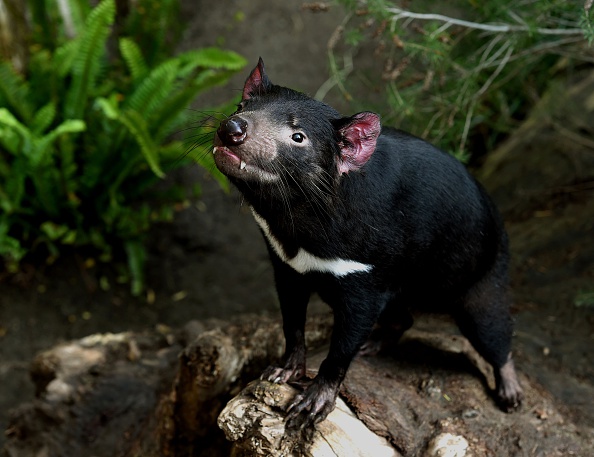Study: Tasmanian devils evolve to resist transmissible cancer


A free daily email with the biggest news stories of the day – and the best features from TheWeek.com
You are now subscribed
Your newsletter sign-up was successful
Tasmanian devils often display aggression toward each other, which typically ends with one biting the other on the face. This act of hostility is helping spread devil facial tumor disease (DFTD), one of only three known forms of transmissible cancer.
First detected 20 years ago, DFTD is fatal nearly 100 percent of the time and has wiped out an estimated 80 percent of devils in Tasmania. In a study published Tuesday in the scientific journal Nature Communications, a team of scientists report that while looking at Tasmanian devil DNA, they discovered that two regions in their genomes are changing in response to the spread of the cancer. "Our study suggests hope for the survival of the Tasmanian devil in the face of this devastating disease," Andrew Storfer, a professor of biology at Washington State University and an author of the study, said in a statement.
Scientists are hoping to soon start breeding DTFD-resistant devils to enhance genetic diversity of the captive population. Storfer says the genomic data could also one day be used to "help direct future research addressing important questions about the evolution of cancer transmissibility and what causes remission and reoccurrence in cancer and other diseases."
The Week
Escape your echo chamber. Get the facts behind the news, plus analysis from multiple perspectives.

Sign up for The Week's Free Newsletters
From our morning news briefing to a weekly Good News Newsletter, get the best of The Week delivered directly to your inbox.
From our morning news briefing to a weekly Good News Newsletter, get the best of The Week delivered directly to your inbox.
A free daily email with the biggest news stories of the day – and the best features from TheWeek.com
Catherine Garcia has worked as a senior writer at The Week since 2014. Her writing and reporting have appeared in Entertainment Weekly, The New York Times, Wirecutter, NBC News and "The Book of Jezebel," among others. She's a graduate of the University of Redlands and the Columbia University Graduate School of Journalism.
